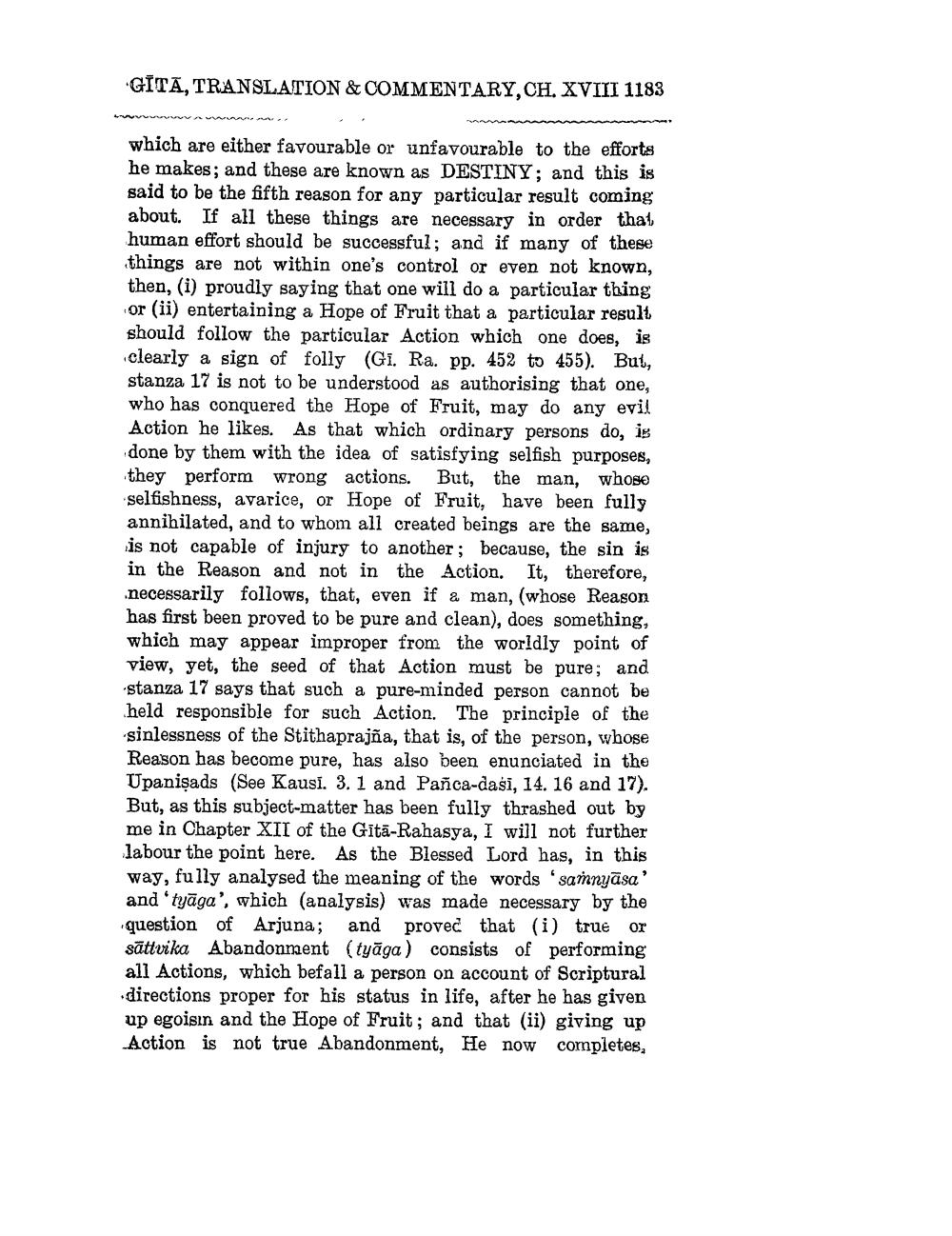________________
GITA, TRANSLATION & COMMENTARY, CH. XVIII 1183
which are either favourable or unfavourable to the efforts he makes; and these are known as DESTINY; and this is said to be the fifth reason for any particular result coming about. If all these things are necessary in order that human effort should be successful; and if many of these things are not within one's control or even not known, then, (1) proudly saying that one will do a particular thing or (ii) entertaining a Hope of Fruit that a particular result should follow the particular Action which one does, is clearly a sign of folly (GI. Ra. pp. 452 to 455). But, stanza 17 is not to be understood as authorising that one, who has conquered the Hope of Fruit, may do any evil Action he likes. As that which ordinary persons do, is done by them with the idea of satisfying selfish purposes, they perform wrong actions. But, the man, whose selfishness, avarice, or Hope of Fruit, have been fully annihilated, and to whom all created beings are the same, is not capable of injury to another; because, the sin is in the Reason and not in the Action. It, therefore, necessarily follows, that, even if a man, (whose Reason has first been proved to be pure and clean), does something. which may appear improper from the worldly point of view, yet, the seed of that Action must be pure; and stanza 17 says that such a pure-minded person cannot be held responsible for such Action. The principle of the sinlessness of the Stithaprajña, that is, of the person, whose Reason has become pure, has also been enunciated in the Upanisada (See Kausi. 3. 1 and Pañca-dasi, 14. 16 and 17). But, as this subject-matter has been fully thrashed out by me in Chapter XII of the Gita-Rahasya, I will not further labour the point here. As the Blessed Lord has, in this way, fully analysed the meaning of the words 'sahnyasa' and 'tyäga', which (analysis) was made necessary by the question of Arjuna; and proved that (1) true or sättvika Abandonment (tyaga) consists of performing all Actions, which befall a person on account of Scriptural directions proper for his status in life, after he has given up egoisin and the Hope of Fruit; and that (ii) giving up Action is not true Abandonment, He now completes,




